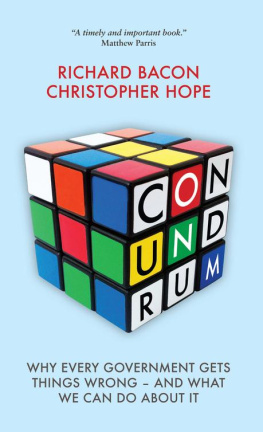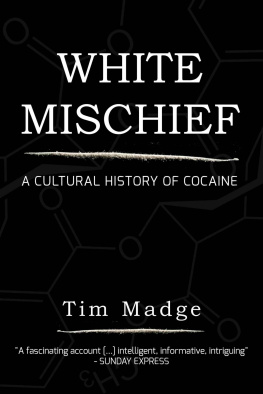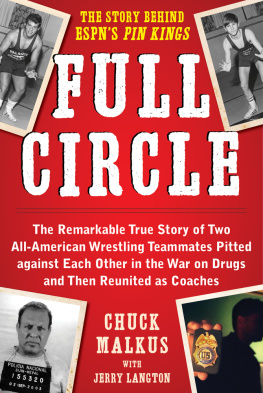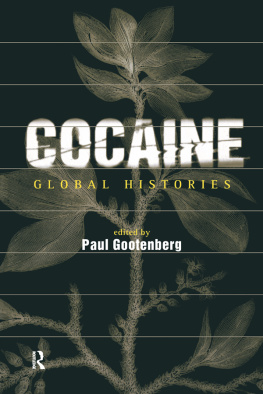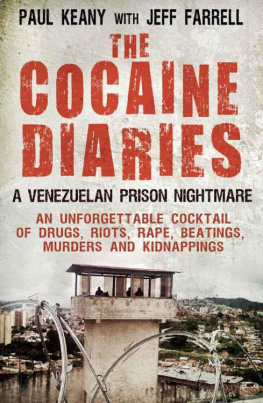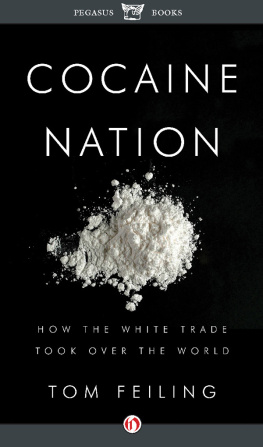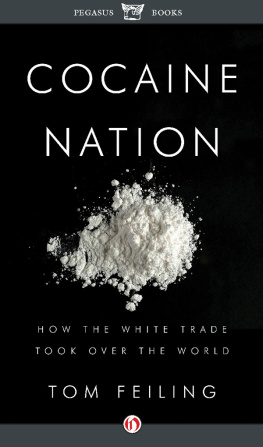W e have incurred many debts in writing this book. We are grateful to the staff at the National Audit Office (NAO) who produced the value-for-money reports on which much of our book is based. We are especially indebted to those NAO officials who read and provided comments on some of the chapters, undoubtedly saving us from various blunders: Geraldine Barker, Philip Gibby, Angela Hands, Aileen Murphie, Lee Summerfield and Paul Wright-Anderson. We also received invaluable advice from Steve Baker, Michael Gove, Sir Leigh Lewis, Robert Matthews, Sir Richard Mottram and Peter Riddell, each of whom commented on early drafts or portions of the book. We are very grateful to them all, although we alone are responsible for what follows.
Richard would also like to record his particular gratitude to the staff in the Public Accounts Committee (PAC) office, Adrian Jenner, Sonia Draper, Ian Blair and James McQuade; to the Comptroller and Auditor General, Amyas Morse, for his professionalism and wise counsel; and to many other NAO officials who have provided tremendous assistance over the last decade, notably Sir John Bourn and Tim Burr, as well as Tim Banfield, Laura Brackwell, Gabrielle Cohen, Mark Davies, Keith Davis, David Finlay, David Goldsworthy, Peter Gray, Keith Hawkswell, Sally Howes, Ed Humpherson, Jeff Jones, Alex Kidner, Barry Lester, Elaine Lewis, Professor Sir Andrew Likierman, Jim Rickleton, Nick Sloan, Max Tse and Michael Whitehouse. Richard is also grateful to Graham Coster, for originally suggesting that he should write the book; to Tony Collins, for a decade of stimulating conversation about the issues examined in the book; to the staff in the House of Commons Library, who were immensely helpful at all times; and to past and present parliamentary colleagues including PAC members with whom he has informally discussed themes in the book, notably David Davis, Nick Gibb, Helen Goodman, Margaret Hodge, Edward Leigh, Peter Lilley and Alan Williams. He would especially like to thank his own office staff for their patience and good humour during the writing of the book: his senior researcher Mike Rigby, who has a rare ability to coax the most recherch of facts from the electronic ether; Tracy Reeve and Michele Savage, who have kept the busy constituency office running smoothly; and Malcolm Venning for help at Westminster.
Richard is enormously grateful to Christopher for agreeing to become co-author and provide some narrative discipline. The book has become a thoroughgoing collaboration, with all parts influenced by both authors. We would like to thank the team at Biteback, notably Iain Dale, Sam Carter and Hollie Teague, whose excellent advice improved the book significantly. One helper must remain publicly unacknowledged but he knows who he is and how valuable his contribution has been.
Above all, we would like to thank our long-suffering families Victoria Bacon, and children Rollo and Ranulph; and Sarah Hope, and children Barnaby, Sapphire and Pollyanna and to apologise to them all for the time we didnt spend with them while writing this book. We hope they think the result was worth it.
Richard would like to thank the constituents of South Norfolk for sending him to the House of Commons as their MP to keep an eye on how the government of the day is looking after their money; and Christopher would like to thank the Daily Telegraph for employing him to work in the House of Commons, with a fine vantage point from which to monitor the work of the politicians and civil servants who run Britain. We would also like to thank our respective Jack Russell terriers Zephyr and Queenie who are the only creatures we know who have watched the writing of this book with complete detachment.
Even in the scarcest times, public money may always be found tobe employed foolishly.
Alessandro Manzoni, The Betrothed
I t is always sensible to make the most of what you have. This simple principle is honoured by most of the worlds major religions. It is the basis of economics, the study of matching scarce resources with competing and potentially limitless wants. And it should be the foundation stone for governments, which spend other peoples money rather than their own.
Yet our governments do not make the most of what they have. They often spend precious taxpayers money wastefully and even stupidly. They hire as civil servants some of the brightest people in the country and then employ them in ways that stifle their creativity and inhibit them from taking personal responsibility for what they do at work. And they often change the ministers who are the temporary political heads of government departments with such bewildering speed that it is all but impossible for those ministers, even the highly talented ones, to obtain a sufficient grasp of what they are doing before being moved on.
One of the central features of our government is how much money it spends. Currently this is around 673 billion per year. Such a number defies our sense of scale but it amounts to nearly 11,000 each year for every single person in the UK. There is a further 18,000 per person of accumulated national debt. The national finances are unsustainable and public spending is now being curtailed in many areas, although total government spending will still be higher at the end of the current spending period in 2015 at around 744 billion than at the beginning; in effect, it is the rate of growth that is being slowed. The money pays for schools and teachers; for hospitals, doctors, nurses and prescription drugs to treat patients; for pensions; for welfare benefits for those who dont have a job; for building and maintaining our roads; for tax collectors to keep the money coming in; for social workers to help people in difficulty; for police officers to catch criminals, courts to prosecute them and prisons to incarcerate them; for our armed forces and their equipment, from frigates and helicopters to missiles and body armour; for collecting the rubbish; for public libraries; for meals on wheels; for firefighters and ambulance drivers; for the planning system; and much, much more, including the huge interest payments on our debts.
In this book we examine a wide variety of cases where many hundreds of millions of pounds of taxpayers money and in some cases many billions were spent on projects and programmes that went wrong and, in particular, those cases where individual members of the public suffered as a result. By doing this we hope to learn more about why things go wrong and how they should be done instead. Our study draws deeply on the work of Britains public spending watchdog, the National Audit Office often known simply as the NAO and also the Public Accounts Committee, through which the NAO reports to Parliament. We also make use of the work of other commentators and other parliamentary select committees. The Public Accounts Committee or PAC, as it is commonly called, was set up by William Gladstone in 1861 after agitation by the Treasury, which had failed for years to get a proper handle on inflated bills for running the Royal Navy. The main work of the committee was to examine the accounts of government departments and then report to Parliament. In the last 150 years there have been numerous changes to the system of auditing and scrutinising public money, most notably the replacement of the Treasurys internal Exchequer and Audit Department in 1983 by the National Audit Office. Over the last thirty years, the NAO has established a reputation as one of the leading supreme audit institutions in the world. Better resourced and more independent than its predecessor, it is now the auditor for all central government departments and agencies, as well as a wide range of other public bodies. In addition to auditing the financial accounts, the NAO also produces a wide range of value-for-money studies, reporting to Parliament independently on how wisely the government is spending public money. It is mainly these value-for-money studies that interest us.

